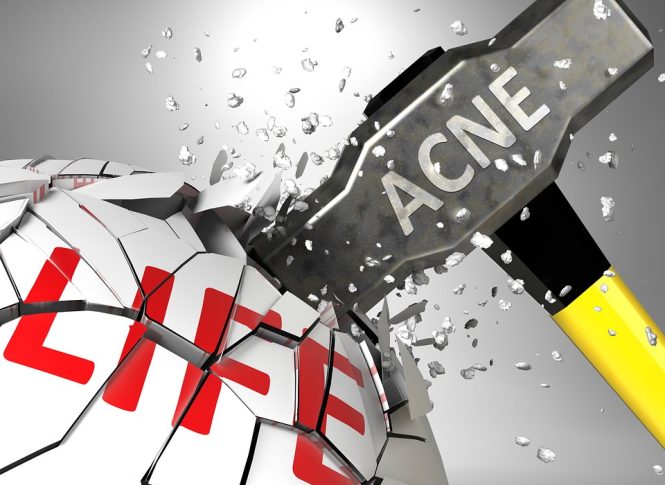
What’s Causing Your Acne? The Role of Genetics, Environment, and Lifestyle
Acne is a common skin condition that affects millions of people worldwide, causing frustration, low self-esteem, and emotional distress. While it’s often associated with adolescence, acne can affect anyone, regardless of age or skin type. But what causes acne, and how can you prevent or manage it? In this article, we’ll explore the complex interplay of genetics, environment, and lifestyle factors that contribute to acne, and provide tips on how to take control of your skin.
Genetics: The Inherited Factor
Genetics play a significant role in the development of acne. If your parents had acne, you’re more likely to experience it too. Research suggests that genetic factors can influence the production of sebum, a natural oil produced by the skin’s sebaceous glands, as well as the sensitivity of the skin to hormones and other environmental factors. While you can’t change your genetic makeup, understanding your family history can help you take proactive steps to prevent or manage acne.
Environment: The External Factors
Environmental factors can also contribute to acne. Some of the most common environmental triggers include:
- Pollution: Exposure to air pollution, particularly particulate matter, can clog pores and irritate the skin, leading to acne.
- Stress: High levels of stress can increase the production of hormones like cortisol, which can stimulate oil production and lead to acne.
- Humidity: High humidity can cause the skin to produce more oil, leading to clogged pores and acne.
- Diet: A diet high in processed foods, sugar, and dairy products can lead to inflammation and increase the risk of acne.
Lifestyle: The Choices You Make
Your lifestyle choices can also play a significant role in the development of acne. Some common lifestyle factors that contribute to acne include:
- Poor Skincare Routine: Not washing your face regularly, using the wrong products, or over-exfoliating can lead to clogged pores and acne.
- Makeup and Hair Products: Using heavy or comedogenic (pore-clogging) products can exacerbate acne.
- Smoking: Smoking can reduce blood flow to the skin, leading to inflammation and acne.
- Lack of Sleep: Poor sleep quality and duration can disrupt hormones, leading to increased oil production and acne.
Other Factors: Hormones and Medications
Hormonal fluctuations, particularly during puberty, menstruation, pregnancy, or menopause, can also contribute to acne. Certain medications, such as corticosteroids, testosterone, and certain antidepressants, can also trigger acne.
Taking Control of Your Skin
While you can’t change your genetics, you can take steps to manage your environment and lifestyle to reduce the risk of acne. Here are some tips:
- Establish a Consistent Skincare Routine: Wash your face twice a day with a gentle cleanser, and use non-comedogenic products.
- Eat a Balanced Diet: Focus on whole, nutrient-rich foods, and avoid processed and sugary foods.
- Stay Hydrated: Drink plenty of water to flush out toxins and keep your skin hydrated.
- Manage Stress: Engage in stress-reducing activities, such as meditation, yoga, or exercise.
- Get Enough Sleep: Aim for 7-8 hours of sleep per night to regulate hormones and reduce inflammation.
- Avoid Picking or Squeezing: Resist the temptation to pick or squeeze pimples, as this can lead to scarring and prolonged healing time.
Conclusion
Acne is a complex condition that’s influenced by a combination of genetic, environmental, and lifestyle factors. While you can’t eliminate acne entirely, understanding the causes and taking proactive steps to manage your environment and lifestyle can help reduce the risk of breakouts. By adopting a consistent skincare routine, eating a balanced diet, and managing stress, you can take control of your skin and achieve a clearer, healthier complexion. Remember, acne is not just a skin issue – it’s a sign of an underlying imbalance that requires a holistic approach to treatment and prevention.